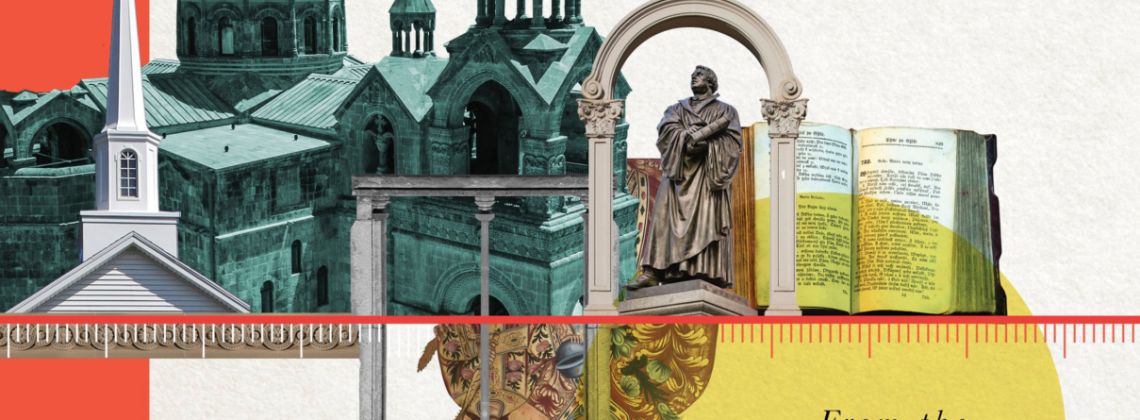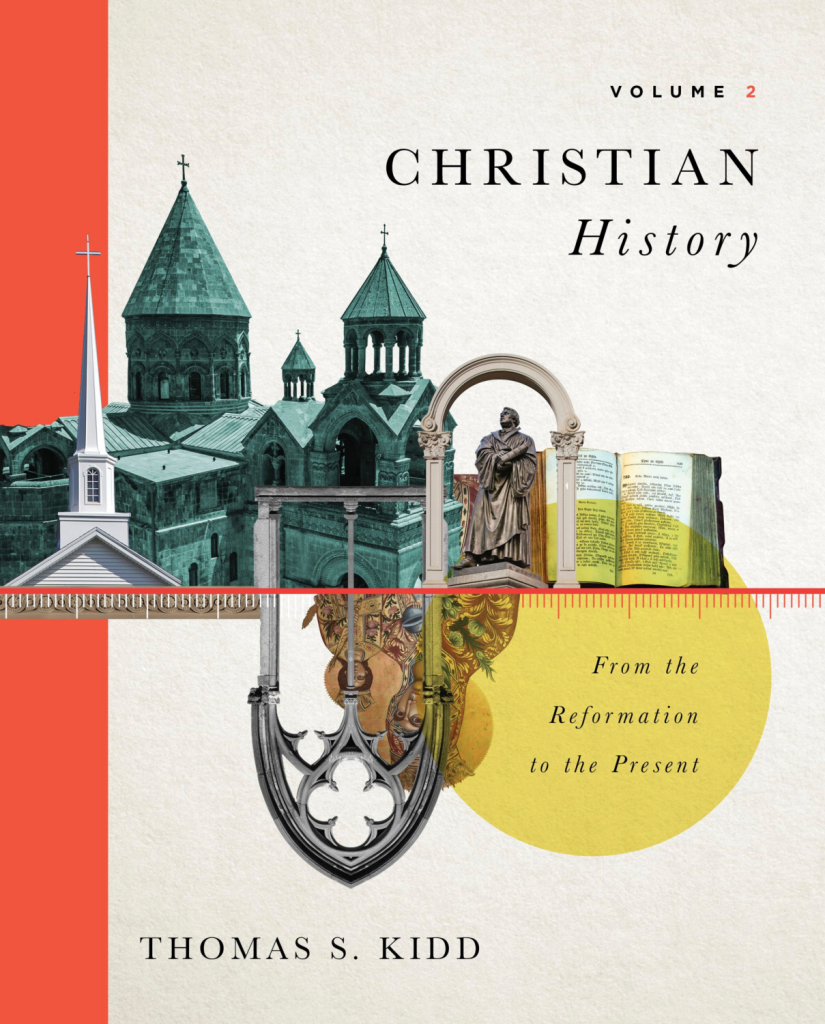

Thomas S. Kidd is best known as a historian of early America and of evangelicalism, but in his recent book, Christian History: From the Reformation to the Present, he tells a broader story of the church–a global one!
***
This book is a Christian history in multiple senses, I was thinking as I was reading. At the most obvious level, as you state outright, “This volume is an overview of Christian history from the Reformation to the present.” At the same time, projects like this one–a survey of global Christianity over the past five centuries–invite reflection on the work of Christian historians. I’d love to hear your thoughts about how (if at all) your view of the task of the Christian historian has changed over the course of your career, and especially in the process of writing this book.
There are various tasks that may be associated with being a Christian historian. As Sarah Irving-Stonebraker recently argued in Priests of History, all Christians have a baseline obligation to be stewards of their history, in order to learn from (or be chastened by) the “great cloud of witnesses” of Hebrews 12.
Those people who are Christian historians in a vocational sense often find that teaching is the main component of their calling. Those who publish books may write primarily for the academic guild, while others seek a more popular audience. I have gravitated somewhat from the first to the second of those intended audiences over my career. Although I still write for outlets like Yale University Press, I have started to do more work with Christian presses like B&H Academic, the publisher of Christian History: From the Reformation to the Present. In particular, this book is geared toward students at Christian colleges and seminaries taking courses such as Church History II.
What are the most important takeaways that you would like your readers to get from this book–besides the content, of course?
Many church history textbooks focus heavily on the history of theology. This is an important topic, of course, and all the usual theologians (Schleiermacher, Barth, etc.) make appearances in my book. But I wanted to center the book on the history of Christianity as believed and lived by everyday pastors, Christians, and churches.
I also wanted the book to fully reflect the global character of Christian history, especially of Protestant and evangelical history. Older overviews did little with Christianity outside of Europe and North America, or if they did, they took a “sidebar” approach that occasionally nodded toward developments outside the North Atlantic world.
I was more excited by the prospect of writing an overview that was global from the outset and had world Christian development woven throughout the narrative. This approach created challenges in terms of the manifest limits to my expertise, as well as the necessarily episodic quality of global history. But I think the effort was worth it, and better reflects the full development of churches and Christianity over the past five centuries.
What were your 2-3 favorite parts of this book to write, and why?
Following on the theme above, I enjoyed telling stories which I had not studied before but wanted to know more about. For example, how did Nagaland in India become the most Baptist place on earth by the 20th century? Or how did the East African Revival of the 1930s undergird much of the massive evangelical and charismatic growth across Africa over the past hundred years? I have spent most of my time as a historian working on the 18th and 19th century in America. But as a Christian, an evangelical, and a Baptist, I feel a deep kinship with these global Christian movements. I love to learn more about them and convey these stories to readers.
The book ends on a somewhat discouraging note, at first glance–the chapter “Global Churches Facing the Future” includes an overview of violent conflicts between Christians and other religious groups (e.g., Muslim-Christian violence in northern Nigeria), and you conclude the book with a section on ongoing persecution of Christians. Why did you want to end with this particular topic?
It is a challenge for a historian to write a concluding chapter for a book that runs to present day. Historians generally prefer to talk about the past than predict the future. I had a similar challenge in writing the last chapter of my textbook American History.
Generally what I was trying to do in the final chapter of Christian History is to give a sense of some of the themes that will likely mark Christian history in the 21st century. These include demographic difficulties related to the worldwide decline in fertility, “culture war” issues including gender, marriage, and sexuality, and religious conflict and persecution, especially in places such as the Middle East, sub-Saharan Africa, and China.
I ended the book with the grim yet inspiring case of Pastor Wang Yi in Chengdu, China, who is currently in prison for “subversion of state power,” among other alleged crimes. Pastor Wang’s ordeal touches on so many of challenges in the world church, and speaks to the hardiness of traditional biblical belief, even in inauspicious settings such as communist China.
What are the broader questions that fascinate you in your reading, writing, and thinking? And on a related note, what are you working on now?
Most of my work has been on the great awakenings of the 18th and 19th century, and on religion and the American founding. Probably one of the consistent threads in my writing has been the ways that religious belief and experiences shape how people live and the decisions they make, for good or ill.
As usual, I have a few projects in the pipeline. I have a book on the Second Great Awakening currently under review with Yale Press, and I am in the early stages of a biography of the great Baptist missionary Adoniram Judson, co-authored with my Midwestern Seminary colleague Jason Duesing.
Thomas S. Kidd is research professor of church history and the Yeats Chair of Baptist Studies at Midwestern Baptist Theological Seminary in Kansas City, Missouri.